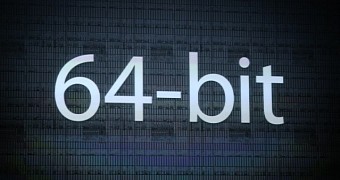If there’s one trend surfacing this year in the mobile industry, it's the fact that 64-bit smartphones are popping out everywhere for as far the eyes can see.
And with this flood comes a slew of side-effects with the most important one being the acute lowering of pricing.
Mobile chip architecture behemoth ARM posted today on Twitter 15 predictions it has for the mobile industry in 2015. Some of them are pretty obvious, like 50% of the smartphones shipped in 2015 will be 64-bit capable, but there are others that are a bit more compelling.
64-bit handsets with LTE will get really cheap
For example, ARM states that in 2015, 64-bit smartphones with LTE will ship for under $70 / €61 for the first time.
ARM is probably referring here to Chinese manufacturers, but still it doesn’t make this price point less impressive.
ARM also believes that once Chinese semiconductor makers will start focusing on the Internet of Things, they will deliver interesting design propositions.
Wearables come into the picture, too. Over the years China has become a huge force in the smartphone market, but it’s still novel to the wearable idea.
However, in 2015 we might get to see this change. Even so, it’s still hard to predict whether these Chinese products will be able to convince consumers that wearables can actually make a difference in our daily life.
Even if wearables have been capturing a lot of spotlight in the last year, customers are yet to massively adopt products such as the LG G Watch.
If 2014 has been the year of wearables, when all eyes were on smartwatches and fitness bands, 2015 buzz is going to shift to robotics. More and more efforts will be put into developing devices like Cubic, the first personal artificial intelligence.
It’s also interesting to point out that ARM prophesizes that increases in cyberattacks concerns will drive hardware security from sensor to server. Online security will continue to be a major concern, it seems, and it's no wonder.
#ARM15for15 5. #64bit LTE smartphones will ship for under $70 pic.twitter.com/sjEOX3PSDf
— ARM Holdings (@ARMHoldings) January 21, 2015

 14 DAY TRIAL //
14 DAY TRIAL //